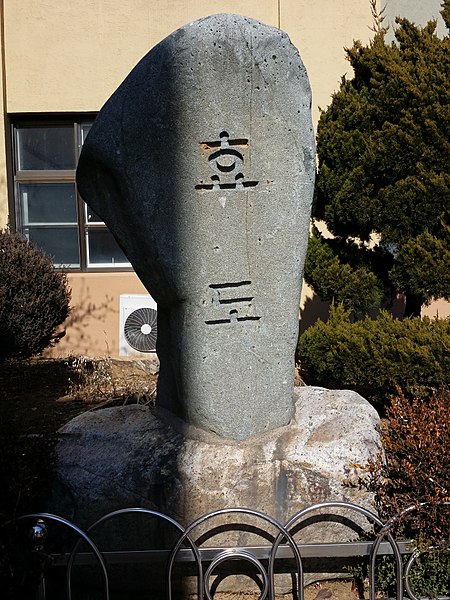Pietas, translated variously as "duty", "religiosity" or "religious behavior", "loyalty", "devotion", or "filial piety", was one of the chief virtues among the ancient Romans. It was the distinguishing virtue of the founding hero Aeneas, who is often given the adjectival epithet pius ("religious") throughout Virgil's epic Aeneid. The sacred nature of pietas was embodied by the divine personification Pietas, a goddess often pictured on Roman coins. The Greek equivalent is eusebeia (εὐσέβεια).
Pietas, as a virtue of the emperor Antoninus Pius, represented by a woman offering a sacrifice on the reverse of this sestertius
Flavia Maximiana Theodora on the obverse, on the reverse Pietas holding infant to her breast.
Denarius of Herennius, depicting Pietas and an act of Pietas.
The Temple of Piety with those of Hope and Juno Sospita at the Forum Olitorium, drawn by Lanciani
Filial piety is the virtue of exhibiting love and respect for one's parents, elders, and ancestors, particularly within the context of Confucian, Chinese Buddhist, and Daoist ethics. The Confucian Classic of Filial Piety, thought to be written around the late Warring States-Qin-Han period, has historically been the authoritative source on the Confucian tenet of filial piety. The book—a purported dialogue between Confucius and his student Zengzi—is about how to set up a good society using the principle of filial piety. Filial piety is central to Confucian role ethics.
Scene from Illustrations of the Classic of Filial Piety (detail), depicting a son kneeling before his parents.
Illustrations of the Ladies' Classic of Filial Piety (detail), Song dynasty, depicting the section "Serving One's Parents-in-Law".
Koteiken, one of The Twenty-four Cases of Filial Piety, depicted emptying a chamber pot for his mother. Utagawa Kuniyoshi, 1848.
A memorial stone at a Korean elementary school, with the inscription "filial piety".








